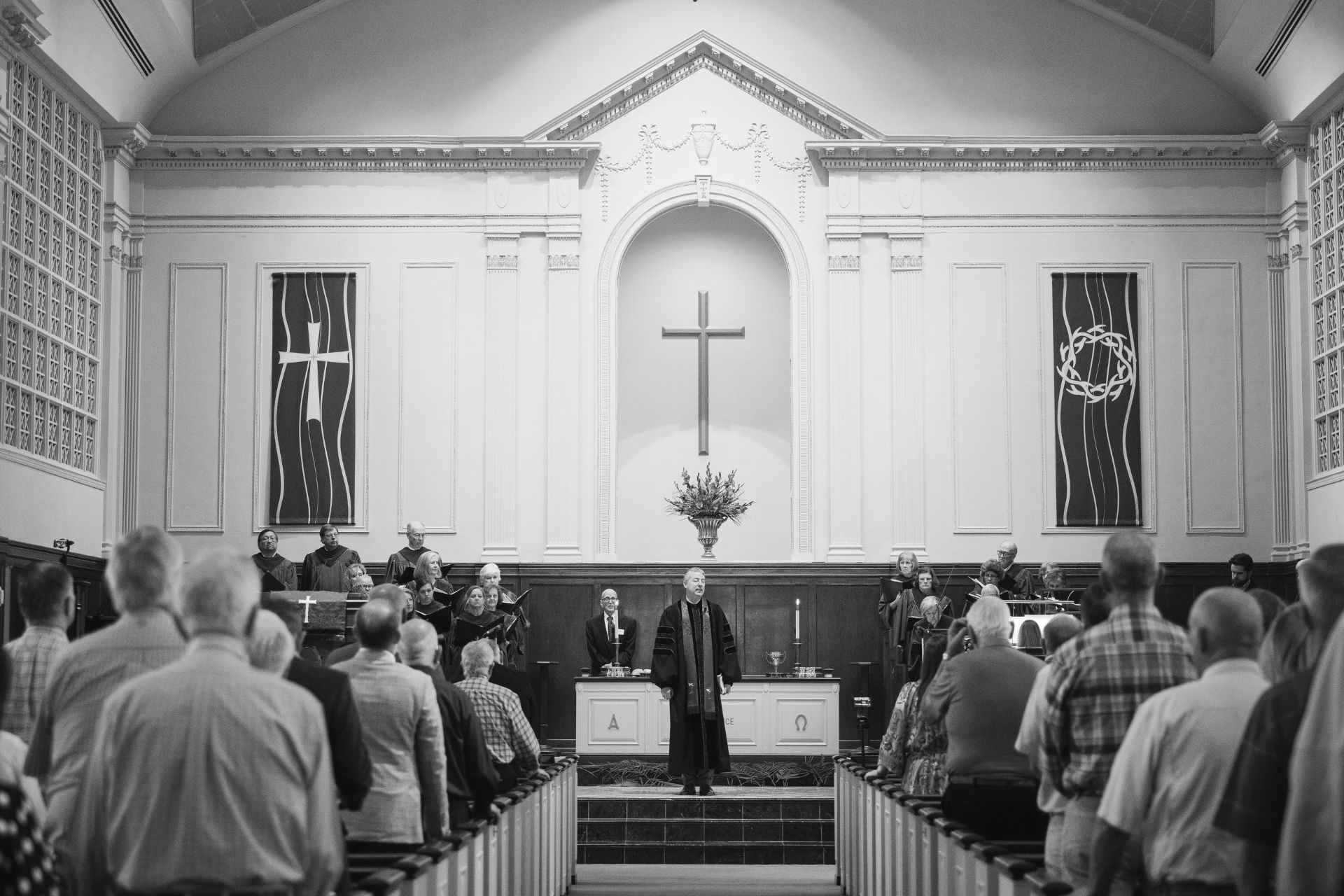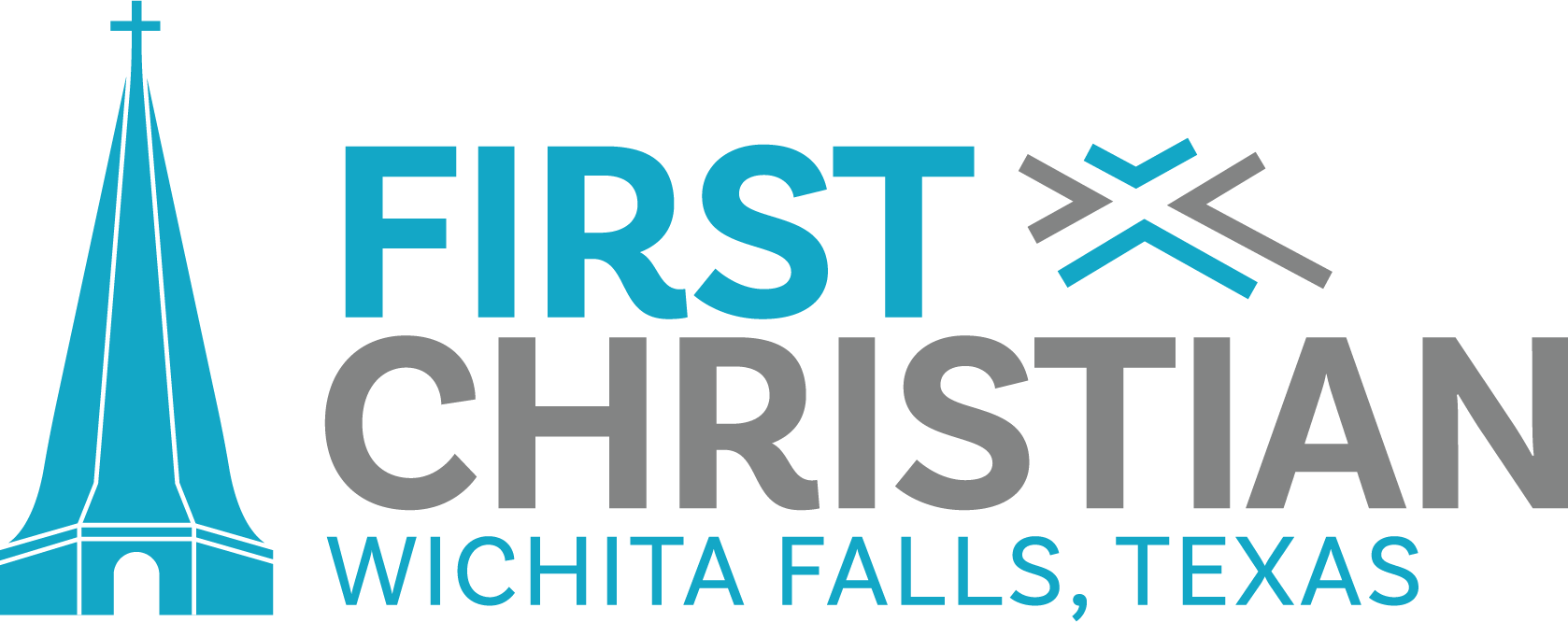About Us
Our mission in Wichita Falls is to shepherd every person to encounter the abundant peace of Christ.
We are a welcoming and open church that encourages all to come and share in the love and peace of Jesus through worship, fellowship, and service.

Our Values
Our values are anchored in the Gospel of Jesus Christ. In keeping with our mission our values are centered around our desire for all people to encounter the abundant peace of Christ.
Firm
We anchor ourselves to Jesus Christ the Son of the Living God in everything we do.
Open
We welcome all to the Table as Christ welcomed us.
Generational
We treasure the presence of every age in leadership and believe God empowers all people to join in ministry.
Outward
We concentrate on others instead of ourselves, letting them know that Jesus Christ is for them.
Intentional
We move beyond a childlike faith, becoming more like Christ as we follow the Spirit’s guidance and presence.
Caring
We attend to the hurts and hopes of all people.
Our Beliefs
As Disciples, we are called together around two essentials of faith: a belief in Jesus Christ as our Lord and Savior, and that Christians are free to follow their conscience guided by Bible study, the Holy Spirit and prayer. All believers are called to extend charity and love in our shared discernment of the will of God. If you have any specific questions about our beliefs, you can find our Pastors using the button below.
- Open Communion
The Lord’s Supper, or Communion, is celebrated weekly in worship and is open to all who believe in Jesus Christ. We remain confident that where two or three are gathered in His Name, Jesus is present through the power and presence of the Holy Spirit.
- Ministry of All Believers
We believe all people by virtue of their baptism and confession of faith in Jesus Christ are gifted by the Holy Spirit and called into leadership within the local congregation. We are convinced by the reading of the New Testament and the language of the Apostles that all were and are welcomed into leadership within the communion of believers.
We honor and value all people’s Spirit-given gifts regardless of age or gender.
- Jesus
We believe that the life, ministry, death, and resurrection of Jesus of Nazareth fulfilled the covenantal promises of God found in the Old Testament. As such we hold Jesus to be the Christ or the Messiah and affirm that all who would confess him as Lord and Savior will inherit eternal life.
We affirm the classical doctrines of the Christian faith as found in the historic creeds yet do not consider them as necessary to enter into communion and membership.
All who confess, as Peter did, that Jesus is the Christ, the Son of the Living God, and accept Him as their Lord and Savior are welcomed, as we were, as members.
- The Trinity
We believe that God is One but exists in three distinct, co-equal persons. God the Father who is the source and origin of all things and the ultimate authority. God the Son who is the Word of God, through whom all things were made and who became human so that all creation would be redeemed. God the Spirit which is the power that inspires, convicts, and empowers believers.
Each person of the Trinity is fully God, possessing the same divine nature, and they exist eternally, without beginning or end existing not as separate and isolated entities but living within a constant, eternal relationship of love and unity.
As such we as a congregation confess the traditional doctrine of the Trinity but do not consider it to be a test of membership or communion.
- God the Father
We believe in God the Father Almighty creator of Heaven and Earth. We affirm that God is the origin and source of all things who created all that is, was, and forever shall be through the Word and the power and loving creativity of His Spirit.
- Holy Spirit
We believe in the Holy Spirit as the Lord and Giver of Life. We hold to the co-equal and eternal nature of the Holy Spirit and consider the Spirit the active and energizing force of God’s will in the world. From the beginning of Creation to the daily restoration and sanctification of believers we believe the Spirit of God has been and is at work.
- The Bible
We hold the Scriptures to be trustworthy and fashioned for the purpose of testifying to the salvation and restoration of relationship with God made possible through Christ and the on-going mission of God in the World energized and made possible by the work of the Spirit.
We affirm and encourage the use of our minds and the employment of a rigorous and disciplined approach to the investigation of the Bible. We believe that the God who was pleased to dwell among us does not discourage the hard and difficult questions of life and faith.
We welcome all who seek to know the God we have come to know in Jesus with generosity, charity, and goodwill.
- Salvation
We believe that Salvation in this life and the next are made possible through the life, ministry, death, and resurrection of Jesus Christ. All who confess Jesus as Lord and as Savior and by doing so place their trust in his Name will be saved.
We consider the work of salvation to be both a moment of reconciliation, symbolized by the sacrament of baptism, and an on-going process of sanctification in which we through the Spirit conform our hearts and minds after Christ. By participation through and with the Spirit of Christ we are fashioned daily as His workmanship to love and serve God as originally intended.
We firmly believe that salvation is by faith in Jesus Christ alone yet in keeping with the historical tradition, the best wisdom of the Saints, and the testimony of the Apostles believe that faith should and does inspire acts of mercy, love, and service in this life.
- Baptism
Baptism is one of the central sacraments of the Christian life and is an outward and visible sign of an inward and spiritual grace. We as believers in Christ enter into the waters of Baptism not to earn the love of God or inherit eternal life, but in imitation of our Lord who though without sin underwent the baptism of repentance to fulfill all righteousness. In baptism, the old self-centered life is set aside, and a new life of trust in God begins as we die and rise with Christ, symbolized by the ritual act of Baptism.
Within the context of Disciples worship we practice Baptism by immersion and reserve baptism until the later stages of development so each respective person can understand the relationship they are entering into.
Despite this, we honor and respect Baptism performed in the context of worship within our brother and sister traditions and do not practice re-baptism.
- Prayer
We believe that prayer is not only central to the life of a Christian but is an innate and fundamental element of human life. Prayer at its most basic is conversation with God, both listening and speaking. Christian prayer is modeled first and foremost after the practice of Jesus and grounded within the larger devotional life found within the Psalms and the larger Old Testament witness.
We celebrate diverse styles of prayer through our worship, ministry, and devotional life as a congregation. We remain convinced that prayer both changes things but also changes us and conforms us daily into the image and likeness of Christ.
- The Church
We believe that the Church understood both universally and locally is ordained by Christ, who is its Head, to serve as a holy and living sacrifice. The Church or the People of God was birthed by the Holy Spirit and lives, breathes, and finds its being within the larger mission of God in the World to restore and redeem creation.
Though there are a variety of symbols, images, and metaphors employed by Jesus and the Apostles to describe the nature of the Church, our particular emphasis rests upon the Table of our Lord as a place where all are welcomed, as we were, to receive the grace and love of God.
Our mission to shepherd every person to encounter the abundant peace of Christ is but one expression of the larger mission of God to restore and redeem all of Creation and we revel in the call God has placed on our lives to join alongside Him.
- What do Disciples Believe?
It is no simple task to summarize what members of the Christian Church (Disciples of Christ) believe. In his book We Call Ourselves Disciples, the late General Minister and President Emeritus Dr. Kenneth Teegarden explains:
“Disciples always have opposed…the use of creeds to exclude persons from the church. It was (the) use of creeds as ‘tests of fellowship’ that the Disciples’ founding fathers fingered as the major cause of division among Christians…(So) unlike most other churches, we Disciples do not have an official doctrinal statement we can refer to when someone asks, ‘What does the Christian Church believe?'”
From its earliest days, the Disciples have held to this motto (attributed to Rupertus Meldenius): ‘In essentials, unity: in nonessentials, liberty; in all things, charity.’ This motto expresses the cherished conviction that liberty should be allowed in the nonessential areas into which most creedal statements roam.
A widely known slogan among Disciples claims “No Creed but Christ.” That conviction is borne out in the manner in which persons come to be a part of the Christian Church (Disciples of Christ). Dr. Teegarden goes on to say:
“Standing before a congregation of Disciples to confess faith in Jesus Christ and become part of the church, a person is asked only one question. It is usually phrased, ‘Do you believe that Jesus is the Christ, the Son of the living God, and do you accept him as your personal Savior?’ The person who responds, ‘I do,’ might have recently completed a church membership course. If so, the instruction will not have been to transmit a system of doctrines. In fact, a person who is comfortable with a dogmatic approach would be disappointed in the Christian Church.”
We Disciples have beliefs and practices in common with all sorts of Christians. These apparent similarities sometimes are superficial, sometimes fundamental. We baptize by immersion, so we look like Baptists. We have Communion every Sunday, so we look a bit like Roman Catholics.
We stress the ministry of the laity, so we look a little like Quakers. Our congregations call their pastors rather than accepting assigned ministers, so in that respect we look like Presbyterians.
We rely heavily on preaching and teaching, so we look somewhat like Methodists. We have congregational government, so we look a lot like the United Church of Christ.
- The Disciples Principles of Identity
The succinct statement of identity above is undergirded by twelve distinct principles of what it means to be Disciples of Christ:
- We confess that Jesus is the Christ, the Son of the Living God, and proclaim him Lord and Savior of the world, requiring nothing more – and nothing less – as a basis of our life together.
- We hold the centrality of scripture, recognizing that each person has the freedom – and the responsibility – to study God’s Word within the community of the church.
- We practice the baptism of believers, which emphasizes that God’s grace demands a response of faith and discipleship, while also recognizing the baptism performed in other churches.
- We gather for the Lord’s Supper, as often as possible, experiencing at this table the gracious, forgiving presence of Jesus Christ.
- We structure our community around the biblical idea of covenant, emphasizing not obedience to human authority but accountability to one another because of our shared obedience to Christ.
- We participate in God’s mission for the world, working with partners to heal the brokenness of creation and bring justice and peace to the whole human family.
- We hear a special calling to make visible the unity of all Christians, proclaiming that in our diversity we belong to one another because we commonly belong to Christ.
- We witness to the Gospel of God’s saving love for the world in Jesus Christ, while continuing to struggle with how God’s love may be known to others in different ways.
- We affirm the priesthood of all believers, rejoicing in the gifts of the Holy Spirit – which include the gift of leadership – that God has given for the common good.
- We celebrate the diversity of our common life, affirming our different histories, styles of worship, and forms of service.
- We give thanks that each congregation, where Christ is present through faith, is truly the church, affirming as well that God’s church and God’s mission stretch from our doorsteps to the ends of the earth.
- We anticipate God’s coming reign, seeking to serve the God – Creator, Redeemer, and Sustainer – whose loving dominion has no end.



